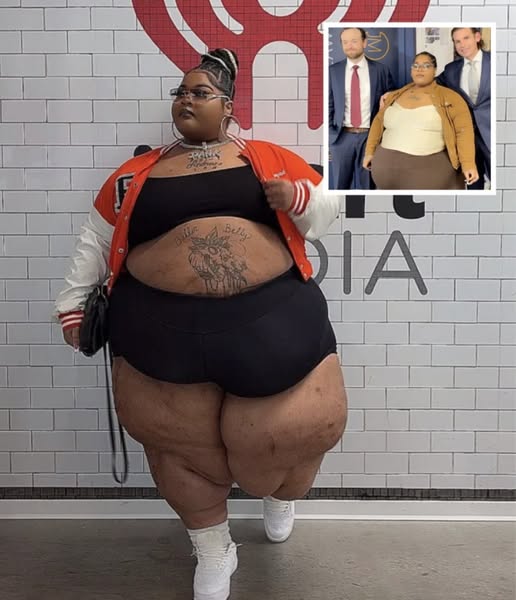A Michigan-based rapper is suing Lyft after claiming a driver refused to pick her up, allegedly because he believed she was too heavy for his car.
Dajua Blanding, 36, who performs under the stage name Dank Demoss, filmed the incident earlier this month and shared the footage on social media. In the video, she can be seen trying to reason with the driver, insisting she could fit in his vehicle.
“I can fit in this car,” Blanding said in the clip.
“Believe me, you can’t,” the driver responded before canceling the ride and assuring her she wouldn’t be charged.
The moment sparked outrage online after Blanding posted the video to Instagram, where reactions were divided. Some viewers sympathized with her and called the driver’s actions discriminatory. Others argued he was within his rights, suggesting she should have requested a larger vehicle like a Lyft XL.
“It’s against the law to overload a car,” one commenter wrote. “The driver stayed calm and respectful—sometimes there’s more to the story.”
Still, Blanding says the experience left her feeling humiliated. “I’ve been in smaller cars than that. It really hurt my feelings,” she said.
In her Instagram caption, Blanding called out Lyft directly, accusing the company of mistreating plus-sized passengers. “AM I WRONG?” she wrote. “I feel like you treat big people like we don’t belong here.”
According to her lawsuit, the driver pulled up in a Mercedes-Benz sedan, locked the doors, and tried to leave when he saw her. When confronted, Blanding claims he told her she was too large to fit in the backseat and even suggested her weight might damage his tires.
“What do I have to do with your tires?” she asked during the exchange.
Her attorneys, Jonathan Marko and Zach Runyan, argue the driver’s behavior violated Michigan law, which protects against discrimination based on weight.
“I knew it was illegal, and I knew it was wrong,” Marko said in an interview. “This is no different from denying someone service based on their race or religion.”
Runyan added, “Refusing someone a ride because of their weight is not only discriminatory—it’s potentially dangerous. What if she’d been stranded somewhere unsafe?”
Despite some backlash, Blanding has stood her ground. Days after the video went viral, she posted another clip of herself in yoga shorts and a jacket, captioned: “Me tryna get Lyft to not discriminate against my weight and let me in the car! Would you let me in?? Anyways, meet me at the Sexxy Red afterparty.”
She has also been candid about her weight, revealing in December that she weighed over 500 pounds and had recently lost more than 40.
In response to the growing controversy, Lyft released a statement condemning discrimination and reaffirming its values. “We believe in a community built on mutual respect. Discrimination of any kind is strictly prohibited under our guidelines,” the company said.
As the lawsuit proceeds, it highlights broader debates around body size, rider rights, and where the line lies between personal discretion and prejudice in the gig economy.
